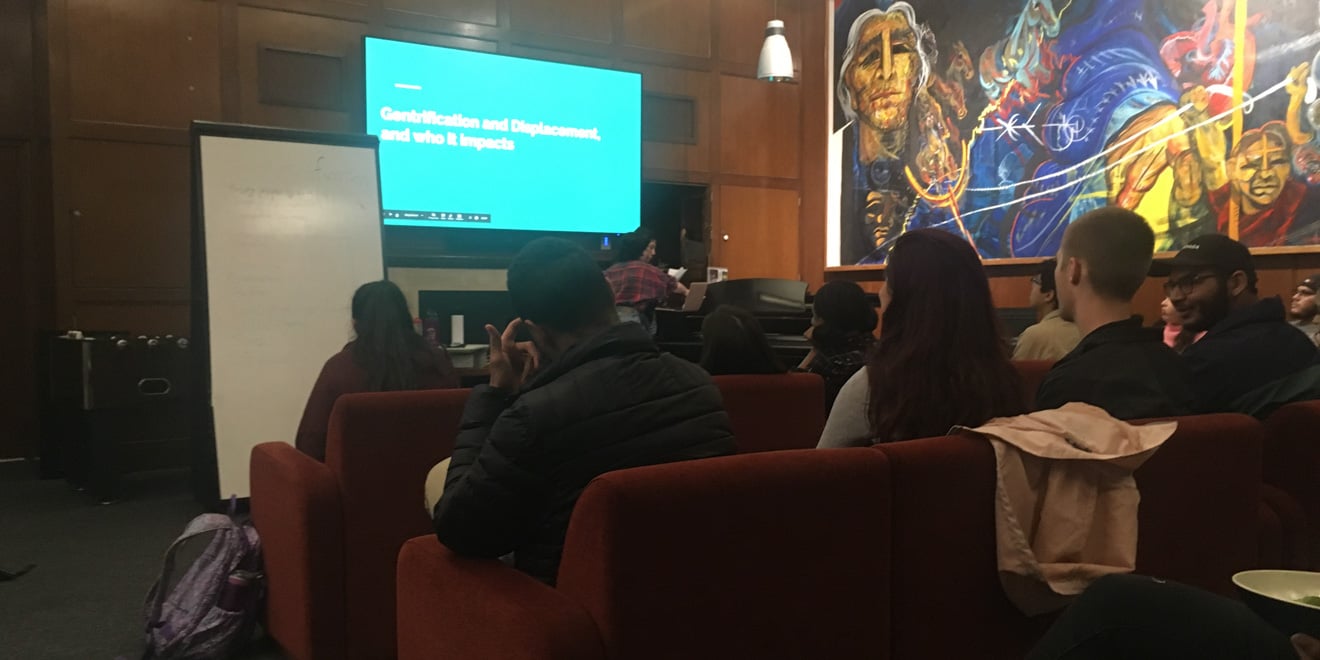At its teach-in on Monday night, the Stanford Coalition for Planning an Equitable 2035 (SCoPE 2035) criticized the way the University deals with the Bay Area housing crisis, centering discussion around the lawsuit the University filed against Santa Clara County in December alleging that the Inclusionary Housing Ordinance unfairly targets Stanford.
About 30 students attended the event at Casa Zapata, hosted by SCoPE 2035 facilitators Marisol Zarate ’19 and Talia Flores ’20. The facilitators also discussed Stanford’s 2018 application for a new General Use Permit (GUP) from Santa Clara County, which would authorize the University to build 2.275 million square feet of new academic facilities and 3,150 housing units by 2035.
Nani Friedman ’20, one of the founding members of SCoPE 2035, said the purpose of the teach-in was to educate students on Stanford’s recent lawsuit.
“Stanford does not want to pay for the affordable housing mitigation that Santa Clara County has mandated,” Freedman said.
In a December statement regarding the lawsuit, Stanford reaffirmed its commitment to providing affordable housing and claimed that the issue was about the “unequal” treatment of the University.
“Stanford recognizes the critical affordable housing challenges in our region, which is why the University is a major supporter and developer of affordable housing,” the statement reads. “The issue in the litigation is not about Stanford’s commitment to more affordable housing, but rather that it is unlawful for Stanford to be singled out for unequal treatment in a county ordinance.”
Zarate believes the University is prioritizing its commercial partners over its workers. She said Stanford’s lack of affordable housing investments is not a result of insufficient money but rather is a result of insufficient concern for local workers.
“I guess they’re not including workers as part of [the GUP] vision or plan, to an extent,” she said.
However, Stanford claims that it supports all community members.
“The university supports and is a major participant in the development of affordable housing, both for members of the university community and for local residents,” the University’s statement on the lawsuit reads.
Event attendee Nathaniel Ramos ’21 echoed Zarate’s sentiment.
“It seems that there’s a lot of willful ignorance on part of the administration,” he said.
Ramos cited curiosity about SCoPE 2035’s activities as one of his reasons for attending Monday’s event. He said the quantitative analysis of the housing crisis was his biggest takeaway.
“In terms of the lack of affordable housing, the cost of rent in the area and the breakdown of where [Stanford] workers are coming from, I thought that was really enlightening,” he said.
In an effort to mobilize the crowd, the organizers also asked attendees to write their thoughts about Stanford’s actions on postcards, which the organizers intend to mail to the Santa Clara County Board of Supervisors.
“We, as students, want Stanford to be accountable for its impact in the surrounding community,” said SCoPE 2035 member Chester Thai ’18 M.S. ’19, who distributed postcards to the audience.
“I don’t think we’ve decided exactly when we’re going to send the postcards, we are potentially going to save them for when students are not on campus,” Friedman said.
The next SCoPE 2035 teach-in is scheduled for Feb. 5 at the Okada Teahouse.
Contact Richard Coca at richcoca ‘at’ stanford.edu and Michael Espinosa at mesp2021 ‘at’ stanford.edu.
